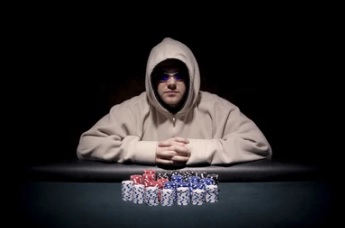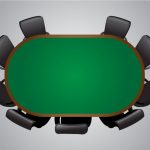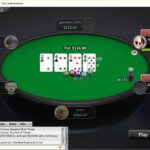During my time at the tables, I’ve had a chance to observe an extensive amount of human behavior. Thanks to the growing popularity of the game, I’m seeing more and more diverse personalities sported by players operating on a variety of skill levels.
But with the ever-expanding pool of competitors, I find that many of my brothers and sisters who’ve been around for a while are forgetting some of the cardinal rules of the game. I’m talking, specifically, about the treatment of new players at the tables. It happens both at live events and when surfing through the online card rooms. There are veterans (and even more who think themselves to be veterans) who, by carrying themselves in a certain fashion, do themselves a disservice and consequently reduce their own level of play.
So here now are a few basics to keep in mind when sitting down at a table full of fresh faces.
Don’t Criticize Opponents for Poor Play.
This is, by far, the most common mistake I see other players make. Calls of “FISH”, “DONK”, or “NOOB” seem to be ever present at the online tables. It makes me sick, and I cannot stress the idiocy of this tactic. It doesn’t matter how it comes about – no matter whether you’ve won a huge pot or lost on a bad beat, you should never, ever criticize a new player for his poor play.
Remember, you want your opponents to make poor decisions against you. Think about it. If the enemy made the “correct” call every time, what would happen to your bankroll? By berating them, you’re only giving them the motivation they need to become better players. Poker needs all the “DONK”’s it can get!
Don’t Compliment Other Players.
Now, if you’re at a table full of friends, this may not hold true. But if you’re playing at a table full of pals, you’re not really trying to make money. When sitting with the rookies, keep your opinions to yourself. Just as you don’t want to berate them for bad play, neither should you praise their solid moves. Let them figure out for themselves whether or not their bets or calls are good. Helping them only takes money from your stack.
Watch for the whiners.
Players who complain about their poor run of cards or lack of luck will almost never bluff. If they’re in the hand with you, it means they have something. This “something”, however, could be any hand holding an ace or a king with a low kicker. Watch how and when they bet. A well-calculated bluff could result in a frustrated fold after the flop.
Chip counts count!
Anxiety is one of the biggest factors in the play of new recruits. Anyone who’s either just sat down at the table or just gotten back to even money are more likely to bluff, and less likely to play poor hands. Pay close attention to the winning and losing streaks of your competitors.
Don’t get caught up in strategic conversation.
Sometimes, players who think they know how best to manage the game will begin lecturing the neophytes on matters of strategy. Don’t fall in to this trap. If you find yourself involved in strategic discourse with a less experienced player during an actual game, then you don’t know nearly as much as you think you do. Remember, you don’t want to give them any insights into the higher levels of poker.
In closing, I do have one or two additional notes. It’s important to realize that there is a strong distinction between wanting to teach someone the proper way in which to play, and wanting to put their money in your bankroll. When playing against friends, it may be excusable to discuss the merits of certain strategies.
But when faced with strangers, don’t act like a know-it-all. You’ll wind up looking like a lost-it-all.
Submit your review | |








